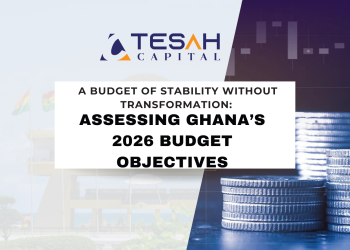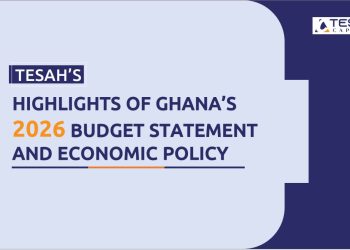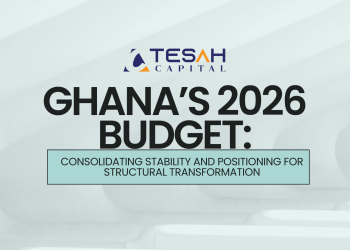Introduction
In this article, I discuss the importance of having an emergency fund as part of the investors approach to achieving financial independence. I have conducted several training on retirement planning for a number of organizations. I have also assisted many individuals in designing their investment portfolios. In my interaction with these investors, a key observation I have made is that many of them do not have an emergency fund or if they do it is not sufficiently funded. This is one of the first mistakes that investors make in their investment journey. Faltering at this stage puts their ability to reach their investment goals at great risk.
It is paramount to start the investment journey by first having an emergency fund. I liken the emergency fund to a foundation that one builds when putting up a building. As we know, no building will stand firm when its foundation is weak. Indeed, In Matthew 7: 24 -27 the Lord Jesus himself had these words to say;
“Therefore everyone who hears these words of mine and puts them into practice is like a wise man who built his house on the rock. The rain came down, the streams rose, and the winds blew and beat against that house; yet it did not fall, because it had its foundation on the rock. But everyone who hears these words of mine and does not put them into practice is like a foolish man who built his house on sand. The rain came down, the streams rose, and the winds blew and beat against that house, and it fell with a great crash.”
What is an emergency fund?
An emergency fund is money that an investor puts aside against a ‘rainy day’. In life, many unpredictable events will occur that may require the investor to liquidate part of their investment. These events include medical emergencies, taking care of sick parents/relatives, paying for funeral expenses of loved ones, paying for unexpected major household renovations, paying for unexpected vehicle maintenance etc.
In the absence of an emergency fund, the investor is forced to liquidate their ‘main’ investments which are typically invested in riskier instruments such as stocks. This can be a huge set back because these investments need time to grow and premature liquidations may come with penalties. If the investor does not have accumulated investments, they are forced to borrow at potentially high rates due to the urgency with which they require the funds.
We can see the principle of the essence of having an emergency fund in Genesis 41: 34 – 36;
“Let Pharaoh appoint commissioners over the land to take a fifth of the harvest of Egypt during the seven years of abundance. They should collect all the food of these good years that are coming and store up the grain under the authority of Pharaoh, to be kept in the cities for food. This food should be held in reserve for the country, to be used during the seven years of famine that will come upon Egypt, so that the country may not be ruined by the famine.”
What should your emergency fund be invested in?
Your emergency fund should be invested in highly liquid instruments such as treasury bills or money market mutual funds. This is to make it easier to withdraw or liquidate funds in the event of an emergency or situation where you need funds urgently. Treasury bills are short-term debt instruments issued by the government to finance its activities. A money market mutual fund on the other hand is an investment fund that pools money from investors and invests in short-term instruments such as treasury bills.
How many months of investment should you have in your emergency fund?
The conventional wisdom has been that your emergency fund should be at least six months of your living expenses/income. The idea is that you should be able to live or survive for at least six months if something unexpected such as losing your job occurs. The money in your emergency fund therefore provides you with a lifeline of about six months for example to look for a new job. However, I would suggest that investors aim to have an emergency fund that can cover between two to three years of living expenses. The COVID-19 pandemic has thought us that labour markets and the entire economy can be disrupted for a prolonged period of time. Consequently, without an adequate emergency fund, investors may find themselves in a very uncomfortable situation when the vicissitudes of life occur.
I know this seems outrageous. Indeed, many people in my trainings and consultations seem to have expressed ‘hopelessness’ at having six months of living expenses or income sitting in an emergency fund distinct from their investments in other assets geared towards providing higher returns. I know that 2-3 years living expenses therefore sounds even more outrageous. However, this is extremely important to be prepared for the unexpected which will occur.
My advice has always been that you can build your emergency fund gradually. You can contribute towards your emergency fund regularly such as monthly as you also contribute to your ‘main’ investments which are geared to provide longer term, higher returns. Consequently, I’m not saying that you need to have 2-3 years living expenses stashed up in an emergency fund before embarking on your investment journey. You can start the journey, whilst building your emergency fund.
This turns out to be a very good outcome I believe. You don’t need to finish your foundation (emergency fund) before building (investing in riskier instruments aimed at providing higher return). You can start your foundation and build at the same time. However, you must have a foundation! Other than that, your investments will come tumbling down when the storms of life hit.
Written By;
Elikplimi Komla Agbloyor
Senior Lecturer, University of Ghana Business School
Chair of Research Committee, Tesah Capital






